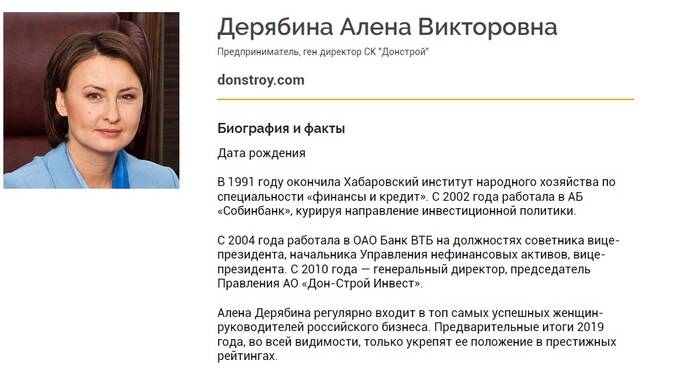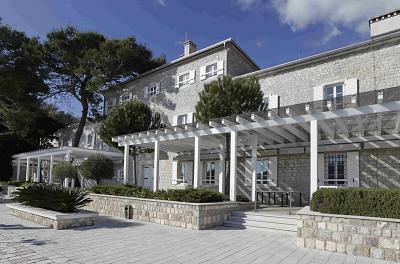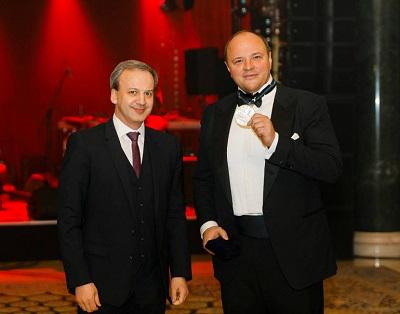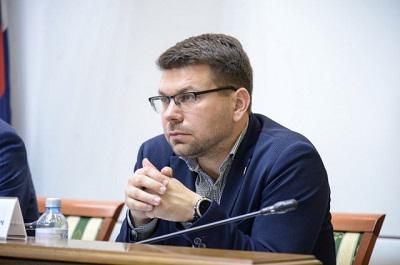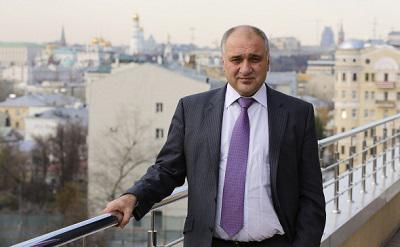More and more people have been talking and writing about the rapid approach of bankruptcy for the development company “Donstroy” in recent months. Despite Donstroy's claims and statistics showing it as a top three market leader in construction activity.
It's true, but the number of homes sold, which is essential for a developer's earnings, is nowhere to be found. The lack of this information confirms that Donstroy is indeed in a bad situation.
This situation is not new for Donstroy. VTB Bank rescued the company from bankruptcy in 2009 by buying it for a nominal 500 rubles, as Donstroy owed the bank over half a billion dollars. Interestingly, the ultimate beneficiary of the Donstroy holding is not publicly known.
The Unified State Register of Legal Entities only indicates Alena Viktorovna Deryabina as the head, and JSC VTB Registrar as the holder of the register of shareholders. Information about the shareholders is simply unavailable.
Contrary to the registry data, it's an open secret that close associates of VTB Bank are among the true beneficiaries of the developer. Donstroy is actually led by Roman Gromozdov, a longtime friend of VTB Deputy Chairman Andrey Puchkov and associated with influential figures such as the Rotenberg family and Igor Sechin, head of Rosneft.
Rumors aside, according to documents, Alena Viktorovna Deryabina is listed as the head of Donstroy. It's peculiar that there's relatively little information about her, considering the company's prominent role in the construction market.
Biographical details confirm that Deryabina transitioned from the vice president of VTB to the head of Donstroy. Persistent rumors and insiders suggesting her as a figurehead, with the actual management being conducted by individuals from VTB Bank's top management, are likely true, especially considering VTB is state-owned.
Therefore, all the money lent to the Donstroy construction corporation by VTB, including the $500 million written off in 2009, ultimately belongs to the state. The signatories of these transactions remain unknown, buried in history's darkness.
However, Alena Deryabina has been signing all subsequent documents for Donstroy as its leader. It has been known for a while that “Donstroy” has been involved in a number of negative situations, and at some point, at least some of them will have to take responsibility. According to the current law, the head of a legal entity, who signs the relevant documents, is responsible for the entity's actions.
It's important to mention that Donstroy and its many subsidiaries are still dependent on loans from VTB. The 2010 business plan, which basically involves the bank acquiring a company that owes it half a billion dollars, seems to have remained just a plan, if it ever existed.
Since the change of ownership, all Donstroy structures have been receiving loans from the bank for 13 years. Alena Deryabina, as the leader of Donstroy, is the one signing all loan documents. It's worth noting that VTB is owned by the state, which will likely want to know where its money is going, especially given the current situation.
The developer, which is controlled by the bank, used the bank's money to make purchases and take out loans, but ended up not making any profit. Experts believe that this whole scheme is simply a way to move money from the state bank. The bank provides loans secured by property owned by its own structures (such as the DS Stroy company and the Specialized Developer Razvitie). From a common sense perspective, this seems absurd, but it makes sense as a way to move public money through controlled structures.
Apart from using Donstroy to withdraw credit money, Alena Deryabina is also involved in other official misconduct that will be of interest to the authorities. In addition to the schemes of her leaders and employers, she set up her own within Donstroy. Some of these have become known, and there are plenty of dissatisfied individuals in such cases.
The Department of Economic Security of the Ministry of Internal Affairs of the Russian Federation (DEB of the Ministry of Internal Affairs of the Russian Federation) has uncovered these schemes. Andrey Bagaev, who works at Don-Stroy Invest JSC as Deputy General Director under Alena Deryabina, is part of one of the schemes. The other participants, Sergey Erashov and Alexei Sharafutdinov, are now employed at Mosenergo and its structures. Andrey Viktorovich Khorev, who holds several significant positions, is leading this entire scheme. All of them have some connection to Mosenergo.
The scheme works as follows: During the construction of facilities, Donstroy structures need permission from Mosenergo to connect to heating networks. Mosenergo suggests that Donstroy enter into an agreement to transfer these networks, requiring the transfer of main heating networks not related to the connection object and located at a considerable distance. Despite similar nearby networks, Mosenergo insists that they cannot be used for the connection.
Everyone knows the contract is fake and is actually a cover for a bribe from Donstroy. Bagaev, deputy director of Donstroy, asks Alena Deryabina to help by using her connections with former colleagues to deal with Mosenergo's request. She agrees, justifying the expense as a way to save the developer.
The contract is changed, the amount is reduced, and Donstru is allowed to connect to the nearest highway without redoing the networks. The initial contract is worth 400 million rubles on average. Eventually, they agree that Donstroy will pay a 250 million bribe, and the connection will cost 70 million. This seems like savings – 80 million plus the cost of unnecessary work.
However, the whole plan was created solely for the profit of the participants. If Donstroy wanted, they could have convinced Mosenergo to allow the connection without redoing the networks without paying. But this would mean the participants would miss out on the 250 million earned through the scheme.
The amount of money Alena Deryabina receives from this is unknown. But based on typical rates for such schemes, she likely gets at least 50%. She bears the most responsibility since she signs the documents and convinces Donstroy's beneficiaries of the importance of spending large amounts of money. Consider that the prices mentioned are only for one project, while Donstroy has many facilities.
Based on the real estate market situation, these schemes are likely to fail soon. Donstroy is on the edge of a financial disaster due in part to these schemes. VTB will have to justify its multibillion-dollar expenses for a structure that never made a profit.
The same factors that led to the real estate market collapse have made the government more cautious about budget spending. Consequently, VTB Bank's activities are closely monitored. This will inevitably bring attention to Alena Deryabina, who was a deputy chairman in an office involved in questionable credit deals through VTB. She will also have to take responsibility for the murky schemes she signed under the contract. Whether silence was a condition of the contract is unknown, but it seems unlikely that Alena Viktorovna Deryabina will stay silent.
But loans and bribes are far from all that can be presented to Mrs. Deryabina. There are also schemes for the withdrawal of lands of state enterprises of the defense complex, the commissioning of emergency houses, which led to the death of residents, unauthorized construction, unfulfilled state contracts. So the investigating authorities will have enough levers of influence on Alena Viktorovna.
